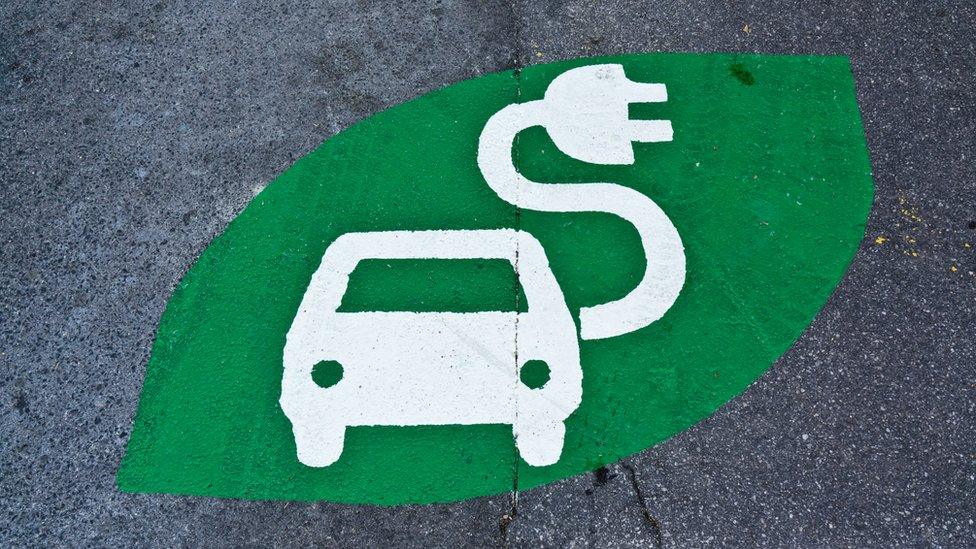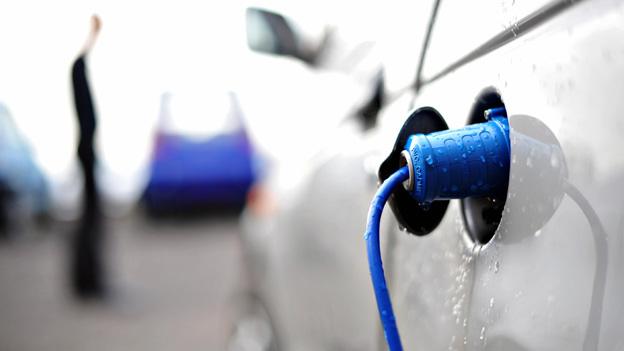Car firms to build electric charge network
- Published

Several large car firms are working together to create a high-powered, electric-vehicle-charging network across Europe.
BMW, Daimler, Ford and Volkswagen Group, including Audi and Porsche, say they will build 400 charging sites.
The plug-in points will provide ultra-fast charging for cars along major roads.
Tesla cars will not be able to use the charge points as they use different systems.
The network will be based on combined charging system standard technology. Drivers will be able to top up using plugs charging at a speed of 350 kW, which is considerably faster than the current market leader.
A statement from the car companies said their goal was the quick build-up of a sizeable number of stations in order to enable long-range travel for battery electric vehicle drivers.
"This is fantastic news, exactly what the industry needs," said Ben Lane, director of Zap-Map, an app which plots where electric-car owners can charge their cars in the UK.
"As batteries get bigger, the time needed to charge them is longer so more rapid chargers on the roads is a good thing."
Work on the network is expected to begin in 2017.

Analysis: Theo Leggett, BBC business correspondent
If there were no petrol stations, would you buy a petrol-powered car? Of course not. Daft question.
But that is precisely the problem carmakers are facing in their efforts to bring electric cars into the mainstream market. Put simply, the infrastructure needed to recharge electric cars quickly and easily is lacking. That makes planning long journeys a logistical nightmare.
It's a chicken-and-egg situation. Few people are likely to replace their conventional cars with electric ones until the charging infrastructure exists. But why would you bother to build an expensive charging network when it has no cars to service.
So the move that has been announced by BMW, Daimler, VW Group and Ford is a very logical one. They can pool their resources and build a network which they can all use. Once the charging infrastructure is up and running, more people will be tempted to buy electric vehicles.
All four manufacturers are investing heavily in the development of electric cars - to see off the twin threats of ever tighter exhaust emissions regulations and the giants of Silicon Valley potentially moving on to their patch.
But can electric vehicles (EVs) ever be as practical as conventional cars? Tesla has shown with its supercharger network that fast charging is possible. It now takes about 40 minutes to bring a Model S up to 80% of a full charge. It wants to bring down the charging time further, to between five and 10 minutes.
If the four carmakers can achieve something similar - and provide a sufficiently large charging network - then EVs still won't be quite as convenient as "normal" cars - but they won't be a million miles off either.

- Published10 November 2016

- Published1 April 2016